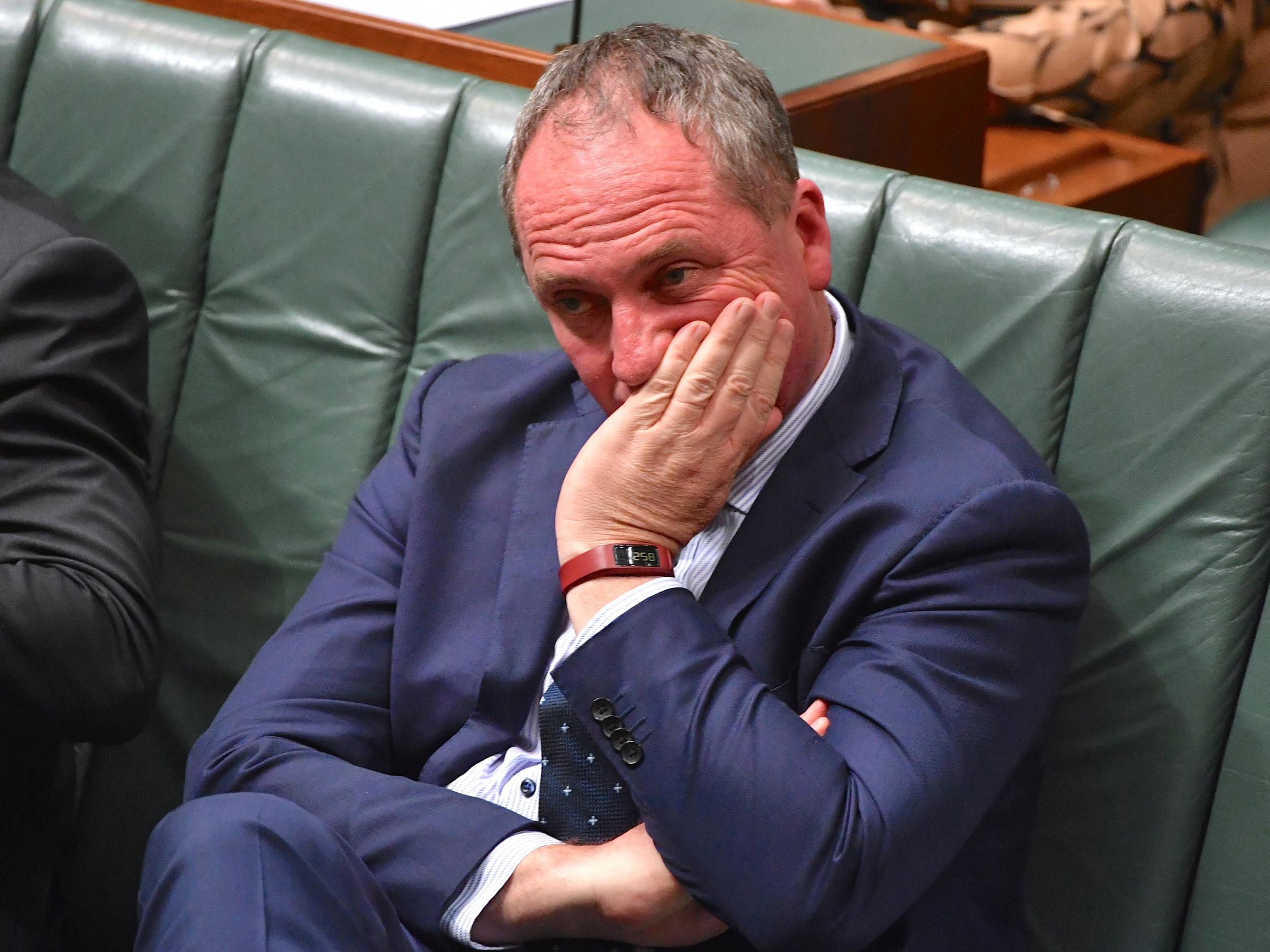Australia's Deputy PM disqualified from Parliament over dual citizenship
Barnaby Joyce ousted by High Court ruling but can stand in December by-election in bid for immediate return on condition he renounces New Zealand passport

Australia’s High Court has disqualified the country’s Deputy Prime Minister and four senators from sitting in Parliament in a unanimous ruling that could cost the government its slender majority.
Critics have condemned as outdated the 116-year-old constitutional ban on “a subject or citizen of a foreign power” standing for Parliament in a country where almost half the people are immigrants or have an overseas-born parent.
The seven judges rejected the government’s argument that five of the politicians – including three cabinet members – should be exempt from the ban because they had not voluntarily acquired or retained citizenship of another country.
While the judges said it may be harsh to disqualify Australian-born candidates who had no reason to believe they were not exclusively Australian, “those facts must always have been knowable”.
They also pointed to the “difficulties of proving or disproving a person’s state of mind” and the “regrettable possibility of a want of candour” if ignorance of dual citizenship was recognised as an excuse.
The decision to disqualify Deputy Prime Minister Barnaby Joyce means a by-election will be held for his rural electoral district on 2 December, the earliest possible date.
Prime Minister Malcolm Turnbull’s conservative coalition has a single-seat majority in the 150-seat House of Representatives where parties form governments.
Mr Joyce will be able to stand for re-election, having renounced the New Zealand citizenship he unknowingly inherited from his father. He is likely to retain the seat with the absence this time of his last election rival, independent candidate Tony Windsor, who will not run again.
Mr Joyce later apologised to his electoral division for the inconvenience of a by-election.
“In my gut I thought this is the way it was going to go,” he told reporters.
“I’m going to make sure that I don’t cry in my beer, I’m going to get back to work and work hard for the people of my electorate.”
The court also disqualified four of the six senators whose qualifications to be elected were debated in a three-day hearing earlier this month.
The disqualified senators included government minister Fiona Nash, Joyce’s deputy in the Nationals party, who inherited British citizenship from her Scottish father.
Another government minister, Matt Canavan, who the court heard might have inherited Italian citizenship from his Australian-born mother through his Italian grandparents, was allowed to stay in Parliament.
The judges found that they could not be satisfied that Mr Canavan was Italian on the evidence presented to court.
Nick Xenophon was also allowed to stay in Parliament. He was born to Cypriot- and Greek-born parents and checked with both embassies to ensure he was not a citizen of those countries. He later found he was British because his father left Cyprus while it was a British colony.
The judges ruled that Mr Xenophon’s status as a British Overseas Citizen did not give him the rights of a foreign citizen because it did not entitle him to enter or live in Britain.
Disqualified senators are replaced by members of their own parties without an election so the balance of power is not altered.
Mr Canavan was sworn back in as a minister for resources and northern Australia late on Friday while Mr Turnbull took over Mr Joyce’s portfolios of agriculture and water resources. Two acting ministers took over Mr Nash’s portfolios.
“The decision of the court today is clearly not the outcome we were hoping for, but the business of government goes on,” Mr Turnbull said.
He said he would refer the court’s decision to a parliament committee to determine whether the constitution should be changed, “ensuring, in our multicultural society, that all Australians are able confidently to stand for and serve in our Parliament”.
Three parliamentary investigations recommended in the 1980s and 1990s that the prohibition on dual citizens be removed from the constitution through a national referendum.
But successive governments have failed to act, perhaps because of the difficulty in persuading Australians to change their constitution. Of the 44 referendums Australia has held since 1901, only eight have been carried, and none since 1977.
The seven politicians said they did not know they were dual nationals when they ran for election last year.
Richard Di Natale, leader of the minor Greens party, praised the honesty and integrity of his former deputies Scott Ludlam and Larissa Waters, who resigned in July after discovering they were New Zealand and Canadian citizens respectively. None of the other five resigned.
“If people are going to have faith in our democracy, then politicians need to start acting with some integrity with some decency and take responsibility for their actions,” he told reporters.
The politicians were exposed as dual citizens as media scrutiny escalated after Mr Ludlam declared in July that he had been illegally elected three times over a decade.
Previously only two politicians had ever been caught out by the foreign citizen ban, although other dual citizens have almost certainly served in the Parliament undetected.
AP
Join our commenting forum
Join thought-provoking conversations, follow other Independent readers and see their replies
Comments
Bookmark popover
Removed from bookmarks